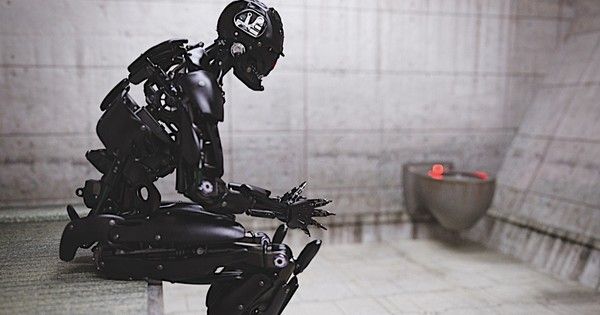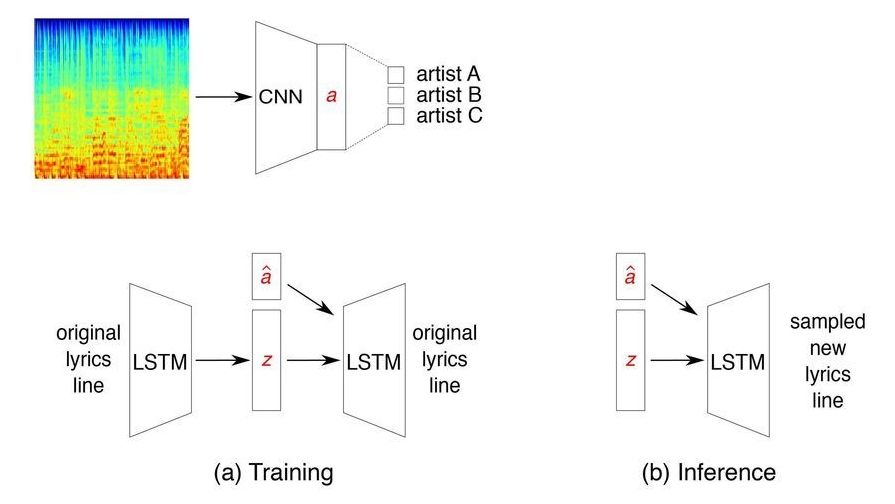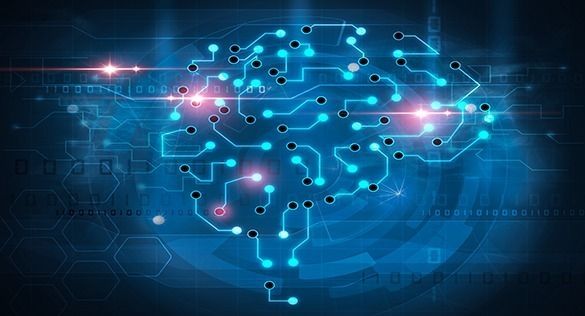I find this subject very fascinating.
AI can fake their emotions but whether they can feel those emotions is another matter.

Researchers are testing a four-legged robot’s ability to find its way through the sewers under Zurich.

Researchers at the University of Waterloo, Canada, have recently developed a system for generating song lyrics that match the style of particular music artists. Their approach, outlined in a paper pre-published on arXiv, uses a variational autoencoder (VAE) with artist embeddings and a CNN classifier trained to predict artists from MEL spectrograms of their song clips.
“The motivation for this project came from my personal interest,” Olga Vechtomova, one of the researchers who carried out the study, told TechXplore. “Music is a passion of mine, and I was curious about whether a machine can generate lines that sound like the lyrics of my favourite music artists. While working on text generative models, my research group found that neural networks can generate some impressive lines of text. The natural next step for us was to explore whether a machine could learn the ‘essence’ of a specific music artist’s lyrical style, including choice of words, themes and sentence structure, to generate novel lyrics lines that sound like the artist in question.”
The system developed by Vechtomova and her colleagues is based on a neural network model called variational autoencoder (VAE), which can learn by reconstructing original lines of text. In their study, the researchers trained their model to generate any number of new, diverse and coherent lyric lines.

Researchers from Australia’s national science agency, CSIRO, have offered a bold glimpse into what the robots of the future could look like. And it’s nothing like C3PO, or a T-800 Terminator.
In a paper just published in Nature Machine Intelligence, CSIRO’s Active Integrated Matter Future Science Platform (AIM FSP) says robots could soon be taking their engineering cues from evolution, creating truly startling and effective designs.
This concept, known as Multi-Level Evolution (MLE), argues that current robots struggle in unstructured, complex environments because they aren’t specialised enough, and should emulate the incredibly diverse adaptation animals have undergone to survive in their environment.

Rapid comprehension of world events is critical to informing national security efforts. These noteworthy changes in the natural world or human society can create significant impact on their own, or may form part of a causal chain that produces broader impact. Many events are not simple occurrences but complex phenomena composed of a web of numerous subsidiary elements – from actors to timelines. The growing volume of unstructured, multimedia information available, however, hampers uncovering and understanding these events and their underlying elements.
“The process of uncovering relevant connections across mountains of information and the static elements that they underlie requires temporal information and event patterns, which can be difficult to capture at scale with currently available tools and systems,” said Dr. Boyan Onyshkevych, a program manager in DARPA’s Information Innovation Office (I2O).
The use of schemas to help draw correlations across information isn’t a new concept. First defined by cognitive scientist Jean Piaget in 1923, schemas are units of knowledge that humans reference to make sense of events by organizing them into commonly occurring narrative structures. For example, a trip to the grocery store typically involves a purchase transaction schema, which is defined by a set of actions (payment), roles (buyer, seller), and temporal constraints (items are scanned and then payment is exchanged).

That most famous characterization of the complexity causality, a butterfly beating its wings and causing a hurricane on the other side of the world, is thought-provoking but ultimately not helpful. What we really need is to look at a hurricane and figure out which butterfly caused it — or perhaps stop it before it takes flight in the first place. DARPA thinks AI should be able to do just that.
A new program at the research agency is aimed at creating a machine learning system that can sift through the innumerable events and pieces of media generated every day and identify any threads of connection or narrative in them. It’s called KAIROS: Knowledge-directed Artificial Intelligence Reasoning Over Schemas.
“Schema” in this case has a very specific meaning. It’s the idea of a basic process humans use to understand the world around them by creating little stories of interlinked events. For instance when you buy something at a store, you know that you generally walk into the store, select an item, bring it to the cashier, who scans it, then you pay in some way, and then leave the store. This “buying something” process is a schema we all recognize, and could of course have schemas within it (selecting a product; payment process) or be part of another schema (gift giving; home cooking).



#MachineLearning and #ArtificialIntelligence are revolutionising the online world. They are capable of reducing costs, analysing data, recognising patterns and trends we can’t see with the human eye and making real- time decisions. Now, they are being used to help prevent financial fraud and they’re learning how to do it better every day.
Machine learning and artificial intelligence are revolutionising the online world. They are capable of reducing costs, analysing data, recognising patterns and trends we can’t see with the human eye and making real-time decisions. Now, they are being used to help prevent financial fraud and they’re learning how to do it better every day.
Currently it is estimated that cybercrime costs the global economy approximately $600 billion, with one of the most common forms being credit card fraud which has grown considerably with the increase in the online market. As more and more people chose to transact online it is becoming increasingly important for financial services to invest in better, faster and more accurate fraud detection and prevention techniques.
How our data helps protect us
Thanks to there being such a large amount of online transactions, this means that there is a huge amount of customer data available which can be studied and learnt by AI. They can learn how to identify valid credit card behavioural patterns and how to detect irregular behaviour which could be fraudulent.

The company is showing several prototypes at CES, including an exoskeleton and a home robot.